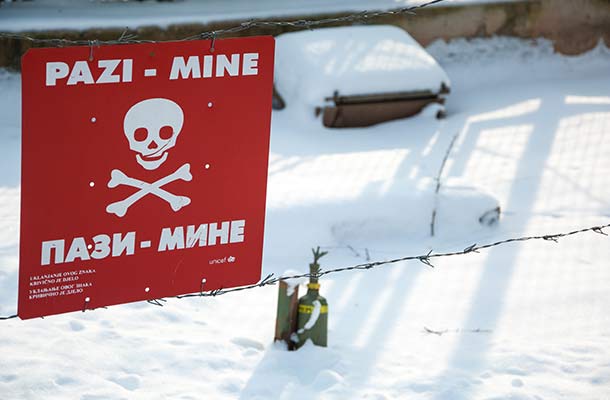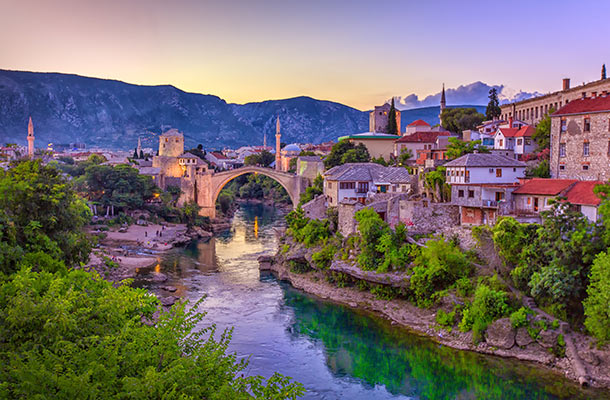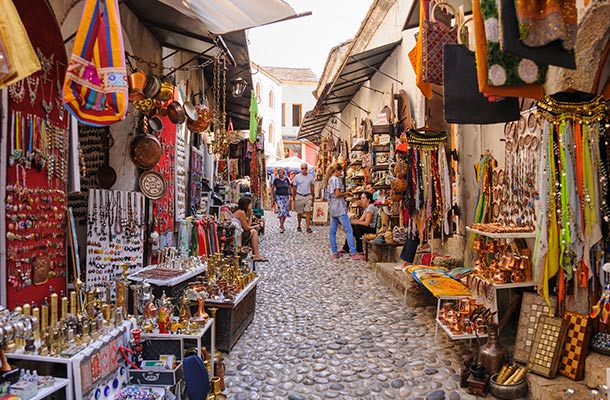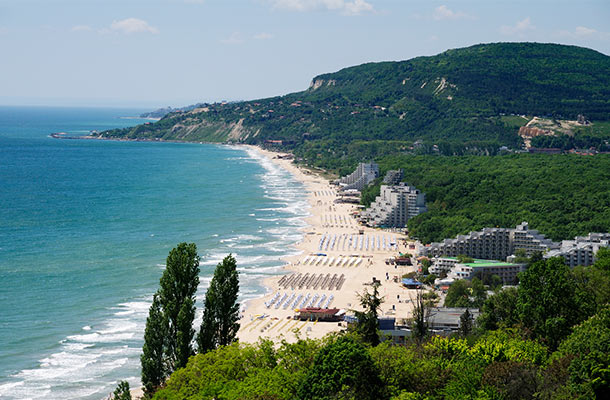How Safe is Bosnia & Herzegovina? 4 Tips for Travelers
Learn about the possible dangers of landmines, poor air quality, driving conditions and local laws before you go.
 Photo © iStock/tcerovski
Photo © iStock/tcerovski
Watch out for landmines
The last estimate, in 2015, recorded around 20,000 minefields, and more than 80,000 active land mines. But, there are efforts in place to make Bosnia landmine-free.
The Bosnia and Herzegovina Mine Action Centre (BHMAC) says there are 1,400 communities affected by mines, and the safety of around 545,000 people is in question.
Between 1996 and 2017, landmines caused 1,750 injured and 612 deaths.
Most urban areas have been cleared, but unpaved roads, abandoned or derelict buildings and minor roads are still hazardous.
Do not travel into or around the former lines of conflict, including some of the suburbs surrounding Sarajevo, as this area has a particularly high number of landmines. The best way to keep your limbs intact is to stay on hard surfaces when traveling and avoid abandoned buildings.
Poor air quality
If you've got asthma or other chronic respiratory conditions, there's a chance you might react negatively to the air quality in Bosnia and Herzegovina, especially in Sarajevo.
With the high amount of pollution and allergens in the air, it's important to have the appropriate medication with you at all times.
If passive cigarette smoke is a problem for you, be prepared .... Bosnians love to smoke!
Natural disasters
Bosnia and Herzegovina resides in an area of active seismic activity, and earth tremors happen every so often.
Larger-scale earthquakes also occur, although this is less likely.
An earthquake in 2016, with an epicenter 17km from the town of Mostar, and 54km from Sarajevo, measured 4.3 on the Richter scale. Tremors were felt in Bosnia and Herzegovina, Montenegro and Croatia.
Driving conditions and special laws
Expect a few differences when you drive around Bosnia and Herzegovina. There are less than 40km of four-lane highways in the entire region. The remaining roads aren't in the best condition, becoming very narrow and winding in places, without guardrails.
It's rare to find guardrails on roadsides, which means no reflectors, throw in some fog, especially during the early morning and at night, and you have very limited visibility. Plus, it's rare to find streetlights outside of the major city centers.
Taking all these warnings into consideration, driving at night isn't recommended.
During the winter months, add ice, snow and even landslides.... what a nightmare!
Because of the poor driving conditions, between the 15th of November and the 15th of April, the law requires all vehicles to use snow chains and winter tires. Don't disregard this; though the fine isn't heavy, the cost of losing control of your car can be deadly.
The law also requires that vehicles have a safety vest, spare tire, first aid kit, safety triangle, towing rope and spare light bulbs at all times. This is rarely checked, but again, it's in your best interest to have these things in case of an accident.
Local drivers aren't exactly the best in the world, so be aware of the cars around you. Don't expect them to follow the law. Drunk driving and speeding (often while intoxicated) along the winding roads in the region are a problem. Even if you're a safe driver, the person speeding around the next bend might not be.
If, after taking all these warnings into consideration, your plans still include driving through Bosnia and Herzegovina (including the road section at Neum on the Dalmatian Coastal Highway), make sure that you have all of the correct papers.
Check that you have the original registration and ownership papers related to your vehicle, as well as your driver's license and Green Card third-party insurance papers.
You should be able to get temporary third-party insurance at Split, as well as other main Croatian cities and main border posts. You can't purchase these at the Neum border.
All sorts of people may be curious about these papers, such as border guards or customs officers. As these people tend to carry machine guns, it's best to have your papers in order.
Related articles
Simple and flexible travel insurance
You can buy at home or while traveling, and claim online from anywhere in the world. With 150+ adventure activities covered and 24/7 emergency assistance.
Get a quote


7 Comments